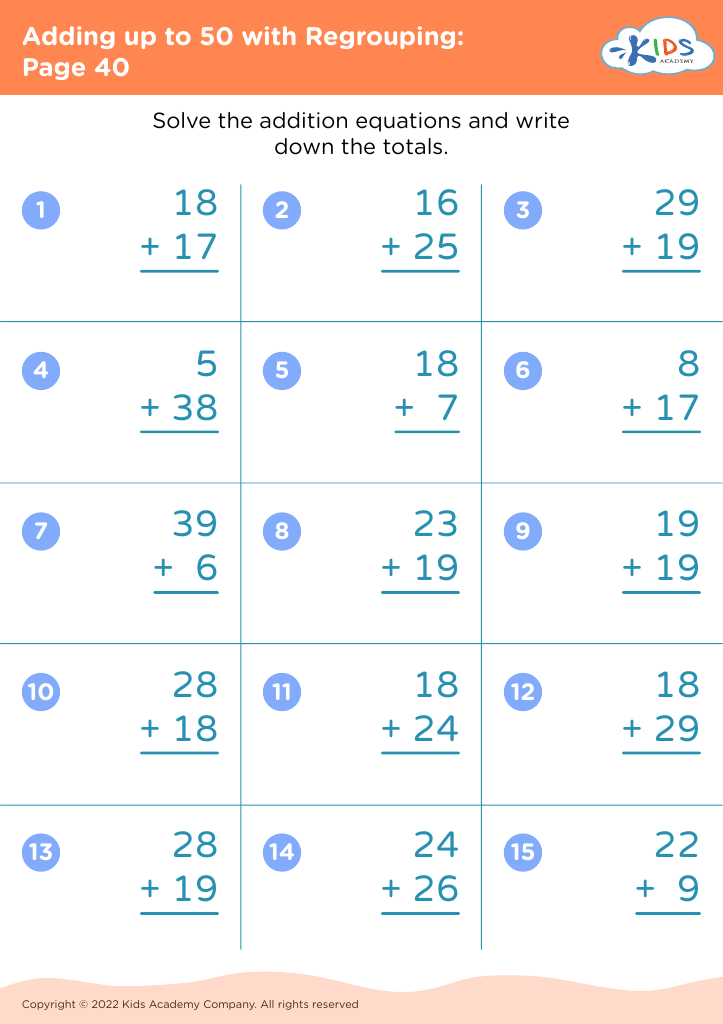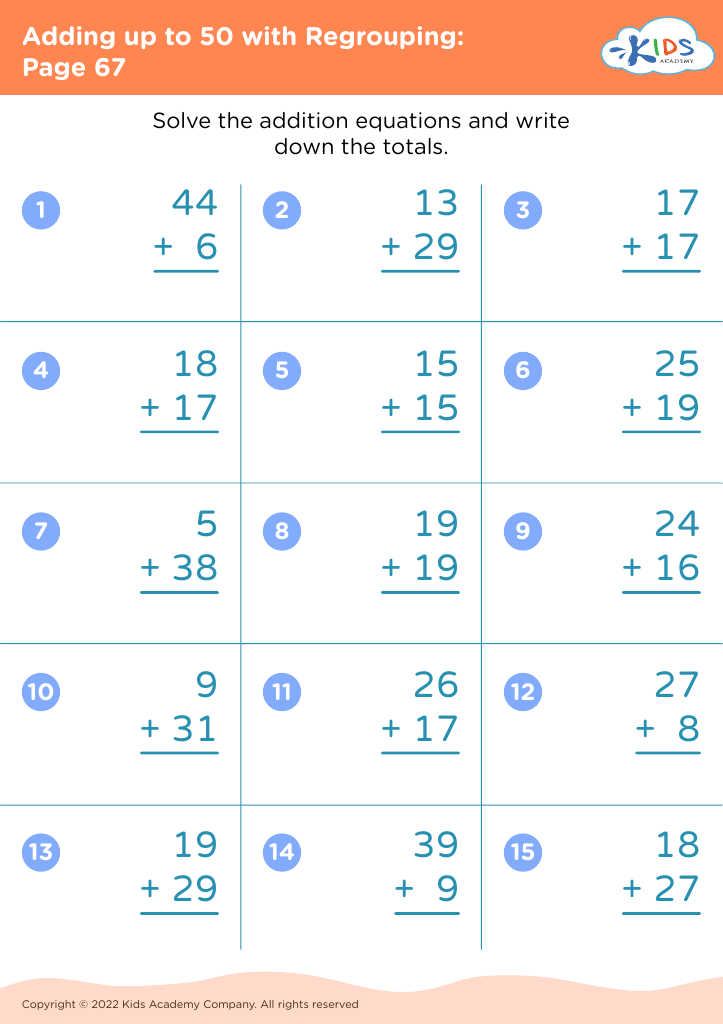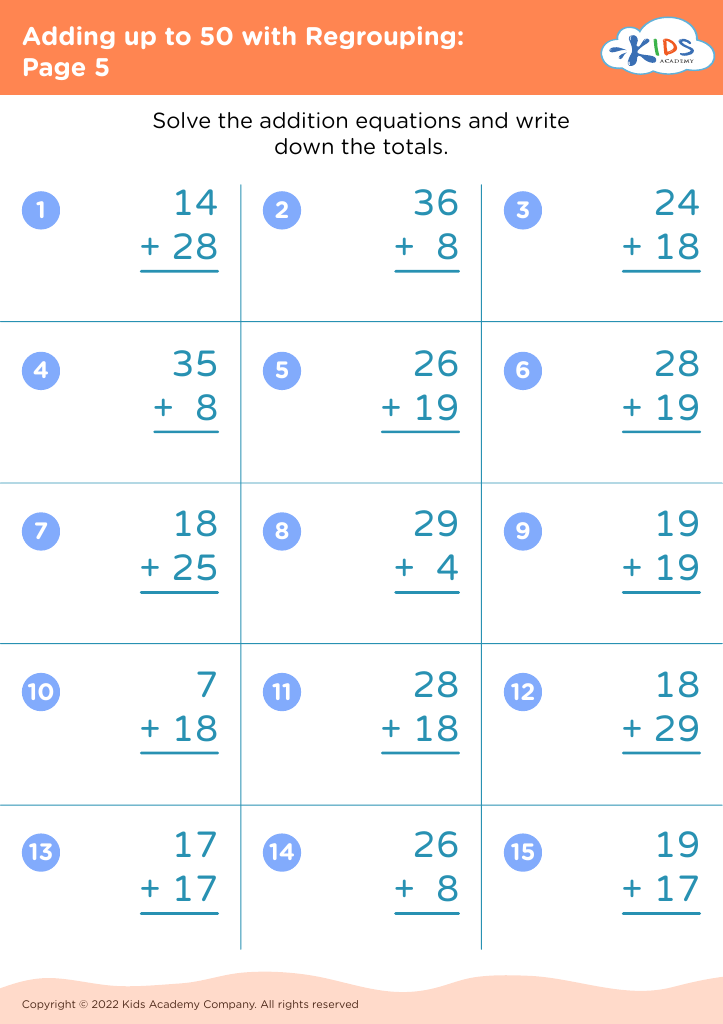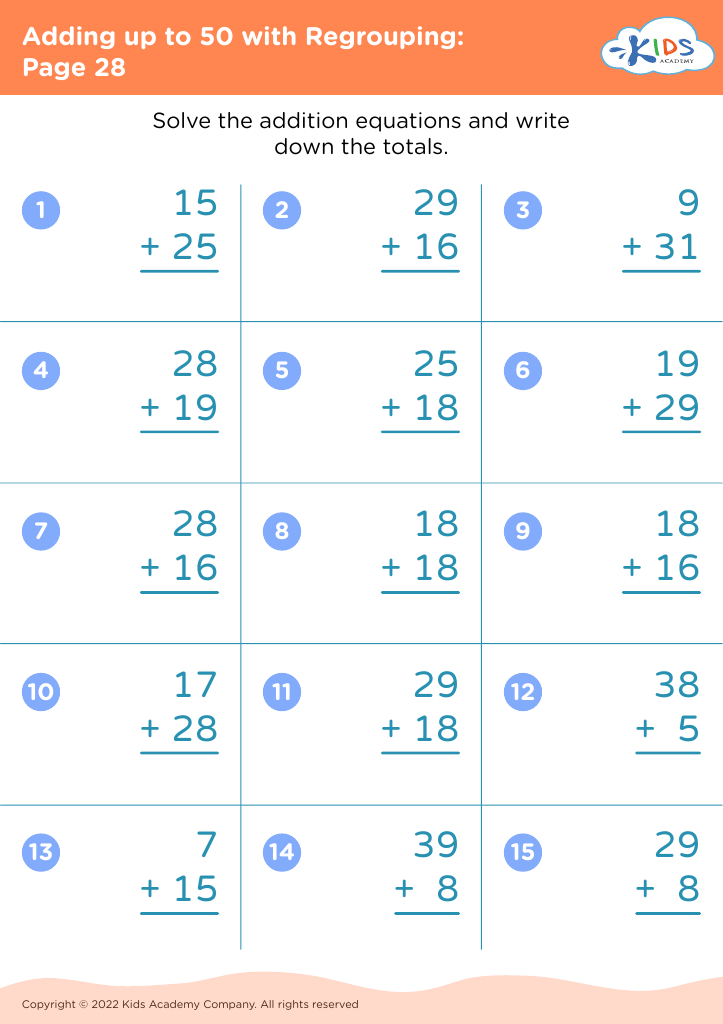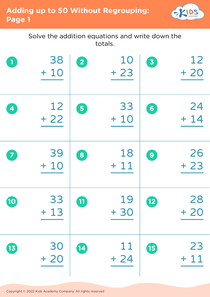Problem-Solving Skills Adding up to 50 with Regrouping Worksheets for Ages 4-7
10 filtered results
-
From - To
Enhance your child’s arithmetic prowess with our "Problem-Solving Skills Adding up to 50 with Regrouping Worksheets" tailored for ages 4-7. These engaging worksheets introduce young learners to essential math concepts, emphasizing the mastery of addition and regrouping techniques. By tackling these carefully crafted problems, children not only boost their numerical skills but also build critical thinking and problem-solving abilities. Our exercises are designed to make learning fun and effective, ensuring a strong mathematical foundation. Ideal for both classroom and home practice, these worksheets will set your young mathematicians on the road to success. Download now to get started!
Developing problem-solving skills in young children, particularly adding up to 50 with regrouping, is essential for their overall cognitive and academic growth. At ages 4-7, children are in a critical developmental period where foundational math skills build the bedrock for future learning. Parents and teachers should care for several reasons:
Firstly, mastering these skills helps children gain confidence and fluency in arithmetic, which is pivotal for more complex math concepts they'll encounter later. Adding up to 50 involves understanding and manipulating numbers, which enhances their number sense and mental calculation skills.
Secondly, regrouping, often known as carrying, fosters critical thinking. It teaches children to break down problems into smaller, manageable parts and follow a systematic approach to reach a solution. This analytical thinking is transferable to other areas of learning.
Furthermore, early proficiency in arithmetic promotes a positive attitude toward math. It helps prevent math anxiety, creating a classroom environment where children feel they can succeed. This emotional aspect is crucial, as a positive relationship with math during these formative years sets a lifelong appreciation and curiosity for the subject.
Lastly, real-world applications of adding with regrouping, like handling money or measuring ingredients, show children the practical importance of math. Providing these skills early on equips children for everyday tasks, fostering independence and practical intelligence.
